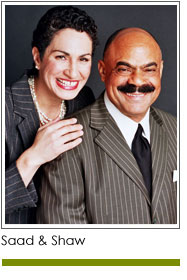 We hear it all the time, “Fundraisers are just professional beggars.” We respond: “Really? Would you call Bill Gates, Elton John, Denzel Washington, Steph Curry, and Elizabeth Taylor beggars? What about the President of the United States, a college president, a minister; or the CEO of the Red Cross, the American Heart Association?” Could it be that we display our insecurity when we call fundraisers professional beggars? Are we afraid to ask others to give to organizations and institutions we believe in, and so we degrade those who are bold enough and talented enough to do so? Maybe this a culture thing: a way in which we put down some people and causes and elevate others?
We hear it all the time, “Fundraisers are just professional beggars.” We respond: “Really? Would you call Bill Gates, Elton John, Denzel Washington, Steph Curry, and Elizabeth Taylor beggars? What about the President of the United States, a college president, a minister; or the CEO of the Red Cross, the American Heart Association?” Could it be that we display our insecurity when we call fundraisers professional beggars? Are we afraid to ask others to give to organizations and institutions we believe in, and so we degrade those who are bold enough and talented enough to do so? Maybe this a culture thing: a way in which we put down some people and causes and elevate others?
Begging is typically associated with asking from a place of destitution, pleading, desperation. The person who begs is seen as “less than” as they seek out food, clothing, shelter, just a little kindness… Many of us seek to be anything but a beggar – we fear those who beg because we fear being in their shoes. Sometimes we turn a cold shoulder saying, “pull yourself up by your bootstraps.” There are many negative associations with the words beggar or begging. But we forget there are also positive connotations. Here’s one that clearly contributes the confusion between fundraising and begging: to ask for as a gift, as charity, or as a favor.
Here's the newsflash: fundraising is a profession. There are standards, qualifications, training and ethics. Those outside the profession don’t always know this. Instead, we elevate or devalue fundraisers based on social status, race, gender, age or gender identity. Here’s an example: some fundraisers beg people to give to HBCUs while others encourage investment in Ivy League institutions. We place these labels on ourselves, and others place these labels on us. This means our work – whether paid or volunteered – is not seen as valuable and the causes we represent are less than.
Fundraising is a noble profession. Fundraisers ask people to come together to contribute towards positive solutions. The solution could be medical research that pays off in 20 years; dance classes for children; national or international travel for high school students. Maybe it is something as “basic” as feeding, clothing, and sheltering our neighbors; ensuring they have access to medical care, counseling, and medications? Do you consider fundraising a proud and honorable profession, regardless of the activity? Or is the “honor” associated with the size of the gift being asked for; the cause; who is doing the asking; the magnitude of the project; who will be served or will benefit?
The nonprofit sector is the third largest employer; in the fourth quarter of 2021 alone it contributed $1.4 trillion to the economy; and fundraising professionals are critical to generating revenue within this sector. Do our language and insecurities create a negative image of an important profession? Are we keeping young people – and mid-career and late-career professionals – from moving into this profession? Our words impact the world we seek to create: let’s lift up our fundraisers and their important work.
Copyright 2022
Mel and Pearl Shaw of Saad&Shaw – Comprehensive Fund Development Services. Video and phone conferencing services always available. Let us help you grow your fundraising. Call us at (901) 522-8727. www.saadandshaw.com.










